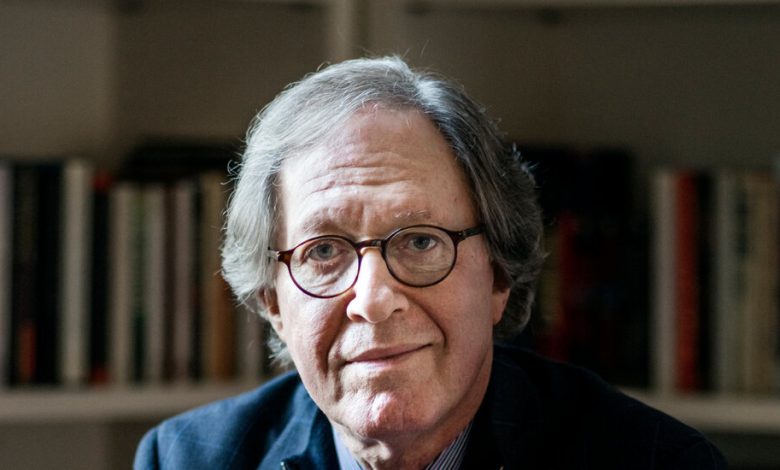Stephen Rubin, ‘Quintessential Hitmaker’ of the Book World, Dies at 81

Stephen Rubin, a book-business fortune seeker who helped make John Grisham and Dan Brown famous writers and who published Michael Wolff’s 2018 chronicle of the Trump White House, “Fire and Fury,” died on Friday in Manhattan. He was 81.
The cause of his death, at a hospital, was complications of sepsis that arose after a recent infection, his nephew David Rotter said.
Mr. Rubin was a patron of classical music who employed a chauffeur. Yet he was also a child of the working-class Bronx who valued literary prestige less than the bottom line.
“When I read something that I know is simply wonderful, I see dollar signs,” he told The New York Times for a 2018 profile.
In that same article, Jonathan Karp, president and chief executive of Simon & Schuster, called Mr. Rubin “the quintessential hitmaker.” “He is to the book business,” Mr. Karp said, “what Clive Davis is to the music industry.”
Mr. Rubin was a 43-year-old freelance journalist and out-of-work magazine editor when he took his first job in publishing, at Bantam Books.
He had to ask his boss what the industry use of the word “royalty” meant, but he also showed initiative. For the first original novel he bought, “Destiny” by Sally Beauman, he paid $1,015,000, then the highest advance ever given to an unknown author. It became a profitable best seller.
Nine months after being hired, Mr. Rubin became Bantam’s editor in chief. Just a few years after that, in 1990, he took over Doubleday (which, like Bantam, was owned by the German conglomerate Bertelsmann). He continued placing million-dollar bets on unpublished books.
“Trying to publish big-ticket best sellers is the riskiest game you can play,” Mr. Rubin wrote in his memoir, “Words and Music: Confessions of an Optimist,” published in January. “But it has been my modus operandi.”
When he arrived at Doubleday, the imprint was about to publish “The Firm,” the second book by a little-known novel-writing lawyer and former Mississippi state legislator named John Grisham. When “The Firm” began to take off, Mr. Rubin invested heavily in advertising both the book and Mr. Grisham himself. Doubleday released a hardcover version of Mr. Grisham’s unsung first novel, “A Time to Kill,” and that, too, became a best seller.
The two men kept working together for nearly 20 years, a period during which Mr. Grisham wrote a popular new book more or less annually.
“He was involved in every aspect of each book, from the story to the title to the marketing,” Mr. Grisham said in a phone interview. “Even late in my career, when I’d sold so many books you wouldn’t think I’d have to listen to anybody, Steve wouldn’t spare me the tough criticism — and he’d often be right.”
In the early 2000s, Mr. Rubin — now running Doubleday Broadway, a restructured firm under the corporate umbrella of Random House — appraised the work of another unproven novelist, Dan Brown. Mr. Brown had already written three novels, but they had all sold poorly. Mr. Rubin read a new proposal of his and spent $400,000 on a two-book deal.
In 2003, Mr. Rubin published Mr. Brown’s “The Da Vinci Code,” a suspenseful tale of centuries-old cults and secret Christian mythology that became one of the most popular books of the modern era. It sold more than 80 million copies, was translated into numerous languages (including Uyghur), incited the Vatican to appoint a cardinal to rebut what it called “shameful and unfounded errors” and inspired a movie that grossed about $760 million worldwide.
“The momentum in New York’s most important publishing house isn’t coming from the charismatic Sonny Mehta (old news) or the free-spending Ann Godoff (moved to Penguin),” New York magazine wrote in 2006. “Instead, Random House’s considerable power now lies with Rubin, the expansionist publisher of the Doubleday Broadway imprint.”
Mr. Rubin used the riches earned from “The Da Vinci Code” to grow while his competitors shrank. “Lock up your editors,” one industry insider told New York.
But by October 2008, Doubleday’s fortunes had turned. The imprint laid off 10 percent of its employees, and soon thereafter it merged with Knopf, empowering Knopf’s publisher, Mr. Mehta, over Mr. Rubin, whose new position, publisher at large, gave him a grand title but much less actual power.
New York magazine developed a new epithet for Mr. Rubin: “the Icarus of big-advance publishing.”
In 2009, he became president and publisher of Henry Holt, a smaller firm without Doubleday’s pedigree. He quickly made a characteristically big bet, paying about $6 million for the Fox News personality Bill O’Reilly and a co-writer, Martin Dugard, to write “Killing Lincoln,” a work of history about Abraham Lincoln’s assassination written in the style of a thriller.
It sold millions of copies and kicked off a whole series of popular (if factually dubious) assassination books by Mr. O’Reilly and Mr. Dugard, which brought Holt “unheard-of amounts of money,” Mr. Rubin later told Publishers Weekly. The company began paying Mr. O’Reilly eight-figure advances.
In 2018, at 76 years old, Mr. Rubin was set to hit it big one more time. Less than two months after Holt published it, Michael Wolff’s “Fire and Fury: Inside the Trump White House” had sold more than 900,000 copies, not including e-book sales and audio downloads. It helped cause a rift, never entirely healed, between President Donald J. Trump and his adviser Steve Bannon; inspired an opening sketch on “Saturday Night Live”; and was even read aloud by Hillary Clinton at the Grammy Awards.
Mr. Wolff said that his plans for the book rapidly changed while he worked on it, but that Mr. Rubin remained faithful to the project throughout.
“He’s the kind of guy you really want when you’re writing a book and you’re full of doubts,” Mr. Wolff told The Times in 2018. “You want an upper, not a downer.”
Stephen Edward Rubin was born on Nov. 10, 1941, in the Bronx, where he grew up. His parents were both the children of Jewish immigrants from Eastern Europe. Irving, his father, ran a buckle manufacturing plant in Brooklyn with his brother. Evelyn (Halpern) Rubin, Steve’s mother, was a homemaker.
Mr. Rubin earned a bachelor’s degree from New York University and a master’s in journalism from Boston University.
In the 1970s, Mr. Rubin wrote frequently about classical music for The Times. He also founded and ran his own news syndicate of freelance writers, Writers Bloc, and in the early 1980s he was briefly an editor at Vanity Fair.
Among the other notable books Mr. Rubin published were two 2003 novels, Mark Haddon’s “The Curious Incident of the Dog in the Night-Time” and Lauren Weisberger’s “The Devil Wears Prada.”
Mr. Rubin faced a dilemma in 2017 when one of his star moneymakers, Mr. O’Reilly, became the subject of a New York Times investigation that revealed multiple allegations of sexual harassment. Mr. O’Reilly lost his job at Fox News and his representation by two talent agencies, but Holt remained committed to him. “The corporate stance is that it’s not our job to judge our authors,” Mr. Rubin told The Times in 2018.
Yet Mr. O’Reilly’s sales quickly plunged. “People had to forgo their bonuses,” Mr. Rubin recalled to Publishers Weekly this year. In 2020, he left Holt and became a consulting publisher for Simon & Schuster.
In addition to his work in publishing, Mr. Rubin created the Rubin Institute for Music Criticism, which has trained classical music critics and provided newspapers with funding to publish music writing.
Mr. Rubin’s gossipy memoir named which best sellers he thought nobody actually read (Thomas Piketty’s “Capital,” Stephen Hawking’s “A Brief History of Time” and, he wrote, the whole oeuvre of Thomas Pynchon); cataloged his biggest failures (including books by Billy Crystal, Mia Farrow and Anita Hill); and chronicled episodes of corporate infighting.
In 1966 Mr. Rubin met Cynthia Robbins, a manager and publicist whose focus was opera. They began dating, married later in life and stayed together until she died in 2010.
No immediate family members survive.
Mr. Rubin’s response to the success of “Fire and Fury” was mostly characteristic. He exulted to The Times about it selling “a kajillion copies.” But in his memoir, he struck a newly wistful tone about the place of books in mass culture.
“In an era when social media and cable television dominate the conversation,” he wrote, “it is thrilling that one lone book could cut through all the static and have a profound effect on an entire nation.”





